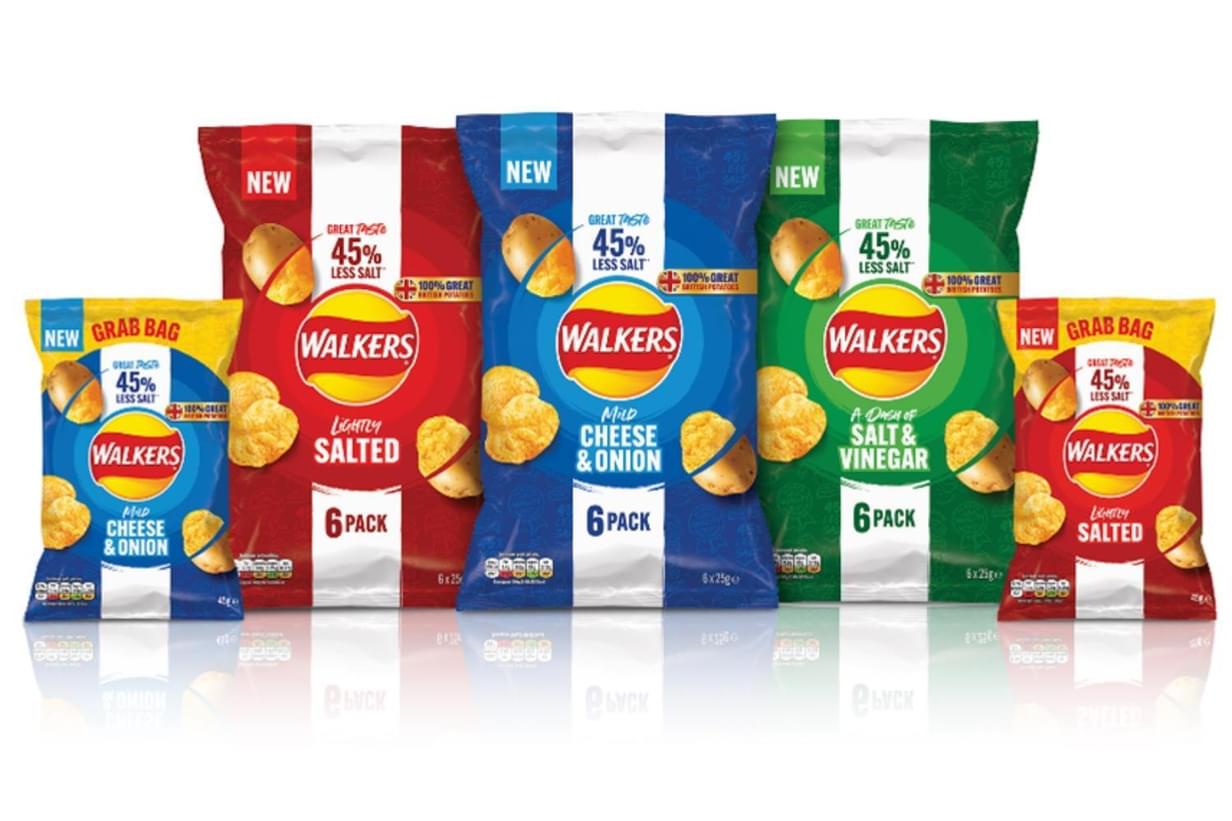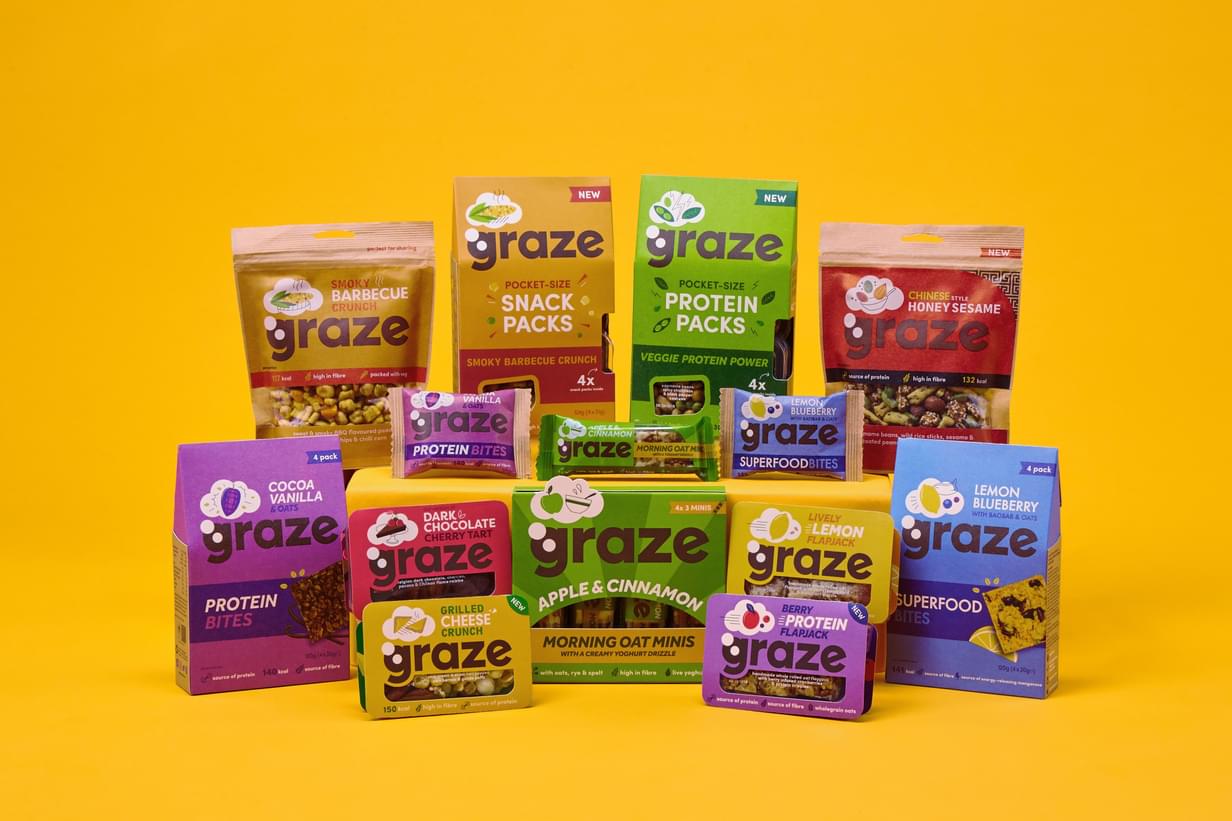HFSS. As crunch time approaches, how are manufacturers coping?

Debargha Ganguly and Andrew Wardlaw
23 Mar, 2022 | 4 minutes
Last week, U.K trade magazine ‘The Grocer’ laid on a conference to support manufacturers dealing with impending laws that will restrict the sale and promotion of food and beverages deemed high in fat, salt, and sugar. It’s fair to say that there was a lot of confusion, with some calls for a delay.
As things stand, new regulations restricting the sale and promotion of ‘unhealthy’ foods will come into force in October 2022. However, reported five-fold increases in energy costs, escalating commodity prices and other issues caused by coronavirus and Brexit has prompted the Food & Drink Federation to call on the Government to delay.
New research has found that 20% of businesses are still unaware of the new legislation and a staggering 70% were unaware that in store promotions of HFSS products will be banned under the new rules.
The research, shared by The Grocer, finds that almost half of those responding to an industry survey feel unprepared.
At the conference, some were labeling the whole thing as draconian, whilst some more progressive voices heralded the HFSS initiative as ‘world leading.’ Delegates had a sense that the world is watching, keen to understand – as are we all - how this ‘meaningful disruption’ will ultimately affect sales, and waistlines.
Colossal impact
Industry estimates provide a sobering assessment of the likely scale of impact.
- 71% of sales generated by the top 16 food & beverage manufacturers are from HFSS products
- Six of the top 16 manufacturers derive 80% or more from their sales from HFSS products
- Salty snacks, sugar confectionery, chocolate confectionery, carbonated soft drinks, biscuits and ice creams are the categories most reliant on HFSS products
It’s worth noting that, unlike previous efforts to tackle fat, salt, and sugar, simply reducing the size of a bar of chocolate or packet of crisps is not an option under the impending regulations. The new HFSS rules do not look at portion sizes and instead cover the nutrition profile per 100g rather than absolute weight.
Barclay’s analyst James Anstead suggests impending regulations ‘could lead to most significant in-store changes seen in decades.’
Of course, many players are just getting on with it. Last week, PepsiCo announced a new range of Walker’s Crisps with 45% less salt that are fully compliant with the new rules. The brand’s own research finds that 79% of its customers are ‘increasingly looking for lower salt snacks’.
Ben Morrison, Retail Services Director UK & Ireland, at NielsenIQ shared more of the nation’s good intentions.
- 54% of U.K shoppers claim to pay attention to labelling and food nutritional value.
- 58% are willing to change their eating habits to be healthier.
- 60% list health as primary driver for change.
- 37% perceive healthy and sustainable diets to be more expensive.
As a reality check, Kantar shared details of what shoppers are actually buying, via panel data.
- 40% of U.K shoppers grocery budget is spent on HFSS goods.
- 15% of this spend goes to the types of products that will face the most restrictions.
- Kantar estimates that £17bn of household spend could be impacted.
In reality, no one really knows what is going to happen, but the hope is that all this effort will make a meaningful difference to the nation’s health. And in truth, it requires Government to set the rules so that all manufacturers are coerced to move together. No one wants to be the first to ‘do the right thing’ and put themselves at a possible competitive disadvantage.

What does HFSS legislation involve?
Amy Glass from the Food and Drink Federation (FDF) provided a summary of the impending legislation – covering in store and advertising restrictions.
- Volume promotions, including multibuys, extra free, and promotions involving loyalty points or discounts will be restricted.
- HFSS products can no longer be placed by store entrances, or within 2 meters of checkouts or designated queuing areas.
- HFSS product displays (such as pop up cardboard shippers) cannot be placed within 50cm of an aisle end.
- Online, HFSS products cannot feature on prominent pages like a home page. Pop-up pages are similarly banned.
- However, the legislation will exempt relevant special offers like meal deals, multipacks, and price discounts for volume promotions.
There is a view that despite the rules, shoppers will still want to find their favourite treat or snack. Companies like Mondelez may actually benefit from the new level playing field due to the strength of its brands and reduced incidence of costly promotion deals.
In respect of advertising:
- The legislation bans all TV advertising of HFSS products between 5:30 am and 9 pm.
- There will be a total ban online display, video, social media, influencer, in-game, and newsletters.
- Brand advertising is exempt as long as no identifiable HFSS products are involved. Audio only like podcasts and radios are also exempt.
Uncertainty rife
Tapping into the conference vibe, one of the most confusing aspects of the new legislation is the HFSS scoring mechanism, where points are rewarded for positive and negative nutrients. An overall score is then calculated to determine if a product is HFSS compliant or otherwise.
Other opaque areas included rules on special offers as part of meal deals. How online advertising restrictions and promotional restrictions will ultimately interplay? There were also questions on the enforcement by authorities.
Meanwhile, the retailers in the room were evaluating what all this means for ranging and merchandising decisions.
Some of the options being evaluated include:
- Using restricted promotional spaces – HFSS products being given new spaces, supported with instore media.
- Placing HFSS in new in-aisle promotional spaces.
- Replacing volume promotion of HFSS products with other promotional mechanics.
Supermarkets that prepare with early trials in accordance with the impending rules are likely to be in best position when restrictions finally come into force.

Reformulate, reformulate, reformulate!
In spite of the fog that surrounds these changes, most manufacturers are planning some level of reformulation or renovation to mitigate the worst effects of the legislation. Not least because retailers are keen to welcome new products that help them safeguard impulse sales.
Confectionery brand Perfetti Van Melle, which markets brands such as Mentos and Chupa Chups revealed (surprisingly) that most of its portfolio is on the right side of HFSS. They suggest that for some companies, innovation rather than reformulation could be the better strategy, as consumers don’t generally react well to changes to their favourite products.
Indeed, innovation is one of five main options identified by MMR in the race to react to HFSS:
- Option 1: Stick. For many products, achieving HFSS compliance is simply inconceivable. Fundamental changes to much loved products like Cadbury’s Dairy Milk would see people take to the streets!
- Option 2: Reformulate. The most talked about strategy, leading to reductions in levels of fat, salt and sugar. This will be easier in some categories, harder in others. Brands like Snack A Jacks have taken this route, making standard ranges HFSS compliant.
- Option 3. Renovate. Here, the aim is not only to make products healthier, but healthful – enriched with more of the good stuff or essential nutrients such as added fibre – for example. This is the route Nestle took with Kit-Kat in 2017. It took down the sugar but added more cocoa.
- Option 4. Innovate. For brands that find any of the above inconceivable, there is an option to innovate and create a more balanced portfolio. According to IRI, 78% of manufacturers already have non-HFSS products, but these often lack high volume potential. Weetabix added a more indulgent line in 2021 called Melts that is fully HFSS compliant and responsive to TV support.
- Option 5. Takeover. If there’s money in the bank, there’s always the option to buy up HFSS compliant food and drink brands already in the market. This option might not be the cheapest but it could be the most pragmatic. Recently Unilever bought Graze, Ferrero took on Eat Natural and Mondelēz added the Hu brand.
As with every disruption there will be winners who are prepared and ready to maximize the opportunities and losers who will react late. Delegates at the conference believe that the most progressive manufacturers and retailers are planning to run some trials of HFSS compliant merchandising and sales mechanics over Easter. So, for those seeking a glimpse of the future, it might be a good idea to keep your eyes peeled as you search for your rebel HFSS Easter Egg.

As HFSS legislation continues to confuse, tap into the expertise at MMR. We’ve been helping brands adapt their product ranges for some time and have a range of testing options so that you can check consumer response. Our Data Sciences teams are also on hand to talk to you about modelling solutions.